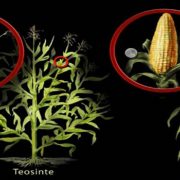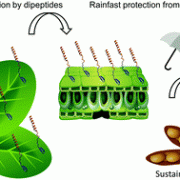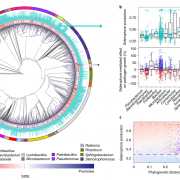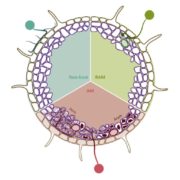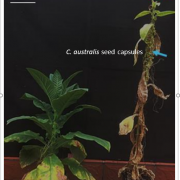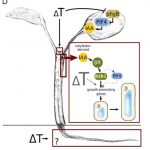Linking CRISPR-Cas9 interference in cassava to the evolution of editing-resistant geminiviruses (Genome Biol)
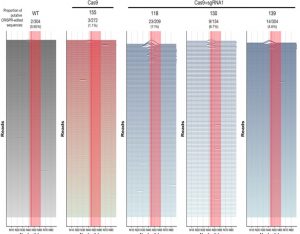 CRISPR/Cas9 is a promising gene editing tool that has already been successfully used to modify many plant genes. In these applications, the gene editing machinery is transiently employed to make a stable genomic change which is then passed on to the progeny. A different application is to use CRISPR/Cas9 for defense against viruses; after all, this tool is derived from a bacterial viral defense system. In this latter application, the CRISPR/Cas9 system is continually expressed and available to identify and cleave viral DNA. Previous studies have suggested that CRISPR/Cas9 is effective in this way, but a new study by Mehta et al. casts doubt. They show that when cassava is engineered to employ CRISPR/Cas to resist cassava mosaic virus the viruses rapidly mutate to prevent cleavage; the viruses become resistant to the defense machinery. The authors conclude, “the implementation of technologies with the potential to speed up virus evolution should be carefully assessed as they pose significant biosafety risks.” (Summary by Mary Williams) Genome Biol. 10.1186/s13059-019-1678-3
CRISPR/Cas9 is a promising gene editing tool that has already been successfully used to modify many plant genes. In these applications, the gene editing machinery is transiently employed to make a stable genomic change which is then passed on to the progeny. A different application is to use CRISPR/Cas9 for defense against viruses; after all, this tool is derived from a bacterial viral defense system. In this latter application, the CRISPR/Cas9 system is continually expressed and available to identify and cleave viral DNA. Previous studies have suggested that CRISPR/Cas9 is effective in this way, but a new study by Mehta et al. casts doubt. They show that when cassava is engineered to employ CRISPR/Cas to resist cassava mosaic virus the viruses rapidly mutate to prevent cleavage; the viruses become resistant to the defense machinery. The authors conclude, “the implementation of technologies with the potential to speed up virus evolution should be carefully assessed as they pose significant biosafety risks.” (Summary by Mary Williams) Genome Biol. 10.1186/s13059-019-1678-3


